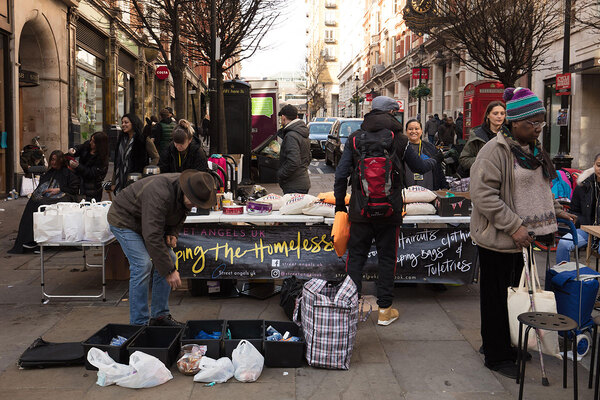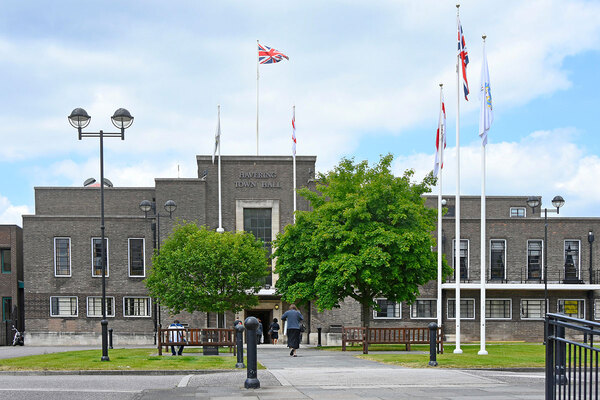You are viewing 1 of your 1 free articles

Darren Rodwell is an executive member at London Councils, housing spokesperson at the LGA, and leader of Barking & Dagenham Council
...moreLondon’s impossible homelessness challenge shows the need for emergency government action
New data shows that one in 50 of London’s population are living in temporary accommodation. Darren Rodwell says there needs to be emergency government action to tackle homelessness
London’s homelessness pressures are increasingly immense and increasingly unmanageable.
More and more Londoners are becoming homeless. But at the same time, the ability of London boroughs to address that homelessness has never been lower.
London Councils’ latest estimate is that almost 170,000 of our residents are homeless and living in temporary accommodation. That equates to one in 50 of the capital’s entire population. On average, there is at least one homeless child in every London classroom.
We are seeing a return to the sort of housing poverty and desperation seen in the Victorian era.
Boroughs do everything they can to support homeless households into suitable accommodation, but this is turning from an uphill struggle to a sheer cliff-face of impossibility.
Privately rented properties are boroughs’ main source of temporary accommodation. As anyone unfortunate enough to have recent experience of looking for housing in London’s private rented sector (PRS) will know, the market is going through unprecedented turbulence.
Properties are snapped up within minutes of being listed. Prospective tenants are paying a year’s rent upfront to secure a home. There simply are not enough properties available to cope with demand, particularly at the lower end of the market.
Research by Savills and the LSE shows a 41% reduction in listings of PRS properties and a 20% rise in rents in London since the coronavirus pandemic. In 2022-23, only 2.3% of PRS housing was affordable to low-income households reliant on Local Housing Allowance to cover their rent.
“Just as we’re seeing Victorian-style social problems, we need to see similar levels of social reform and government ambition to tackle the crisis”
These factors are key contributors to London’s skyrocketing homelessness rates, yet they also mean boroughs cannot find enough temporary housing for those who need it. London Councils’ analysis shows that the number of London families placed in last-resort bed and breakfast accommodation doubled over the past year – and the number stuck in B&Bs beyond the six-week limit increased by a shocking 781%.
The situation is extraordinary grim. Long stays in B&B accommodation can have severe negative impacts, particularly on families with children. But boroughs only make these placements when no other options are available for keeping a roof over homeless families’ heads.
These appalling statistics show just how bad the shortage of affordable accommodation has become – and how broken the homelessness system now is.
This is not just a problem for London. The number of households in temporary accommodation is at record levels nationally, although London accounts for more than half the overall total. If homeless Londoners cannot be housed within the capital – and we are indeed seeing a rise in the number of out-of-London homelessness placements made by boroughs – this has clear implications for the whole country.
London’s affordability crisis is becoming a national crisis.
Boroughs are tasked with preventing and relieving homelessness, but we lack the powers and resources necessary to achieve that in the face of massive and unyielding pressures. We need emergency action from the government, with national policy addressing the core factors causing homelessness and better enabling councils to make a difference in their communities.
Just as we’re seeing Victorian-style social problems, we need to see similar levels of social reform and government ambition to tackle the crisis.
“There has never been a more important time for the government to come together and to work with councils and other key partners. The current approach is failing too many people”
First and foremost, minsters should order an immediate uplift in Local Housing Allowance rates to make at least 30% of properties affordable to benefit claimants. This would assist boroughs in finding accommodation for homeless households, as well as reducing the numbers becoming homeless in the first place.
The government pursued this policy at the height of the coronavirus pandemic and it is widely agreed that this decision helped avoid mass homelessness.
Second, the government should deliver additional capital funding for councils to buy properties as landlords leave the private rental market. Undoubtedly, the fundamental solution is to build more affordable housing and that remains a key priority, but in the meantime purchasing homes being sold by private landlords is a fast way to acquire accommodation for homelessness households.
London Councils is pushing for a number of additional policy measures, including more Homelessness Prevention Grant funding and resources for Discretionary Housing Payments. However, we ultimately want to see a cross-departmental government strategy for both tackling homelessness and supporting the private rented sector to prevent a further loss of supply.
As the homelessness crisis reaches unprecedented proportions, there has never been a more important time for the government to come together and to work with councils and other key partners. The current approach is failing too many people. As a country, we can and must do better.
Darren Rodwell, executive member for regeneration, housing and planning, London Councils; leader, Barking & Dagenham Council
Sign up for our homelessness bulletin
Already have an account? Click here to manage your newsletters












